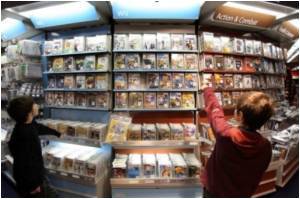Those rough and thrilling driving-based computer games that adolescents play could be leading to reckless driving when they take to the roads for real, a study of teenagers' attitudes

She suspected it might, noting that "some drive-’em-ups give you points for driving into cars or even pedestrians".
Beullens, with colleagues Keith Roe and Jan Van den Bulck, questioned around 2000 Belgian 16 and 17-year-olds, both male and female, asking them how often they played racing and drive-’em-up games.
"I’ll never know if they answered truthfully. But other studies suggest people respond honestly when assured their data is anonymised, as this was," New Scientist quoted Beullens as saying.
Two years later, she questioned those who had gained driving licences on how often they were willing to take risks in traffic, plus their attitudes to key safety issues like speeding and drink-driving.
The team found no statistically significant link between drink-driving at 18 and earlier exposure to games, but reckless attitudes to both speeding and risky driving were significantly linked with having played driving games at the age of 16 and 17.
Advertisement
If the results can be firmed up in further studies, Beullens thinks it strengthens the case for safe driving campaigns targeted at young drivers immersed in gaming culture.
Advertisement
Source-ANI











